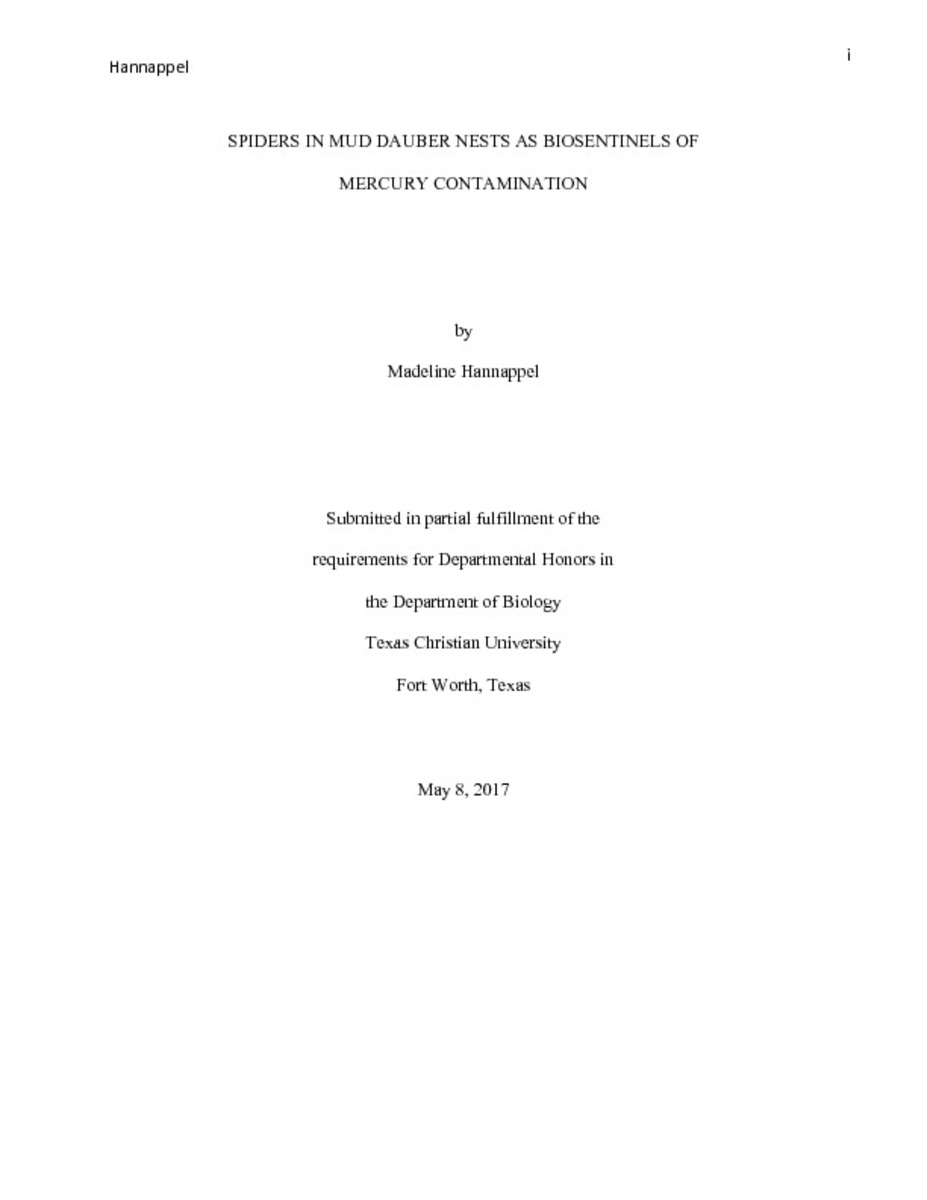Spiders In Mud Dauber Nests As Biosentinels Of Mercury ContaminationShow full item record
| Title | Spiders In Mud Dauber Nests As Biosentinels Of Mercury Contamination |
|---|---|
| Author | Hannappel, Maddy |
| Date | 2017 |
| Abstract | Methyl mercury (MeHg) is a highly toxic environmental contaminant found in all waterbodies. Mercury (Hg) is primarily from anthropogenic emissions that are deposited into watersheds and water bodies. In aquatic ecosystems, aquatic bacteria convert the non-bioaccumulative inorganic form of Hg into the highly toxic and bioaccumulative methyl form of Hg (MeHg) which is incorporated in the aquatic food chain. Spiders become contaminated with MeHg by consuming emergent aquatic insects that transport MeHg from aquatic to the terrestrial environment. Methyl mercury-contaminated spiders pose a health risk to spider-consuming birds. Spiders can be used as biological monitors (biosentinels) of MeHg. My study examined if spiders in the nests of mud daubers (Sceliphron caementarium) could be used as biosentinels of MeHg contamination in the environment. Adult mud daubers capture spiders with a paralyzing sting and use them as the food source for the larvae in their nests. I collected 350 mud dauber nests from four sites near the Trinity River in Fort Worth, TX. Over 2,000 spiders of five different families were collected from the nests. All five taxa of spiders were contaminated with Hg, with a significant difference in Hg between spider taxa. The concentrations of Hg in the spiders were high enough to pose a risk to nestling songbirds consuming them. This study is the first to suggest that mud dauber nests can act as a source of spiders to be used as biosentinels for MeHg contamination of the environment. |
| Link | https://repository.tcu.edu/handle/116099117/19850 |
| Department | Biology |
| Advisor | Drenner, Ray |
| Additional Date(s) | 2017-05-19 |
| NOTE: | Full text permanently unavailable by request of author. Contact author for access. |
Files in this item
This item appears in the following Collection(s)
- Undergraduate Honors Papers [1463]
© TCU Library 2015 | Contact Special Collections |
HTML Sitemap



